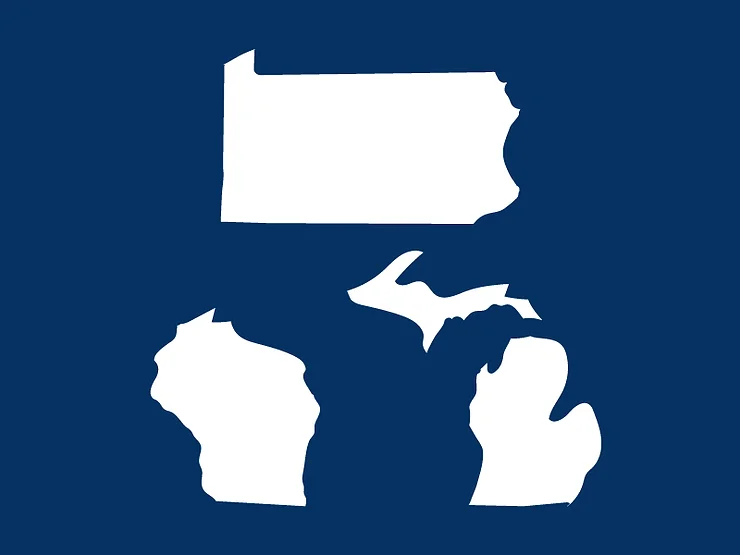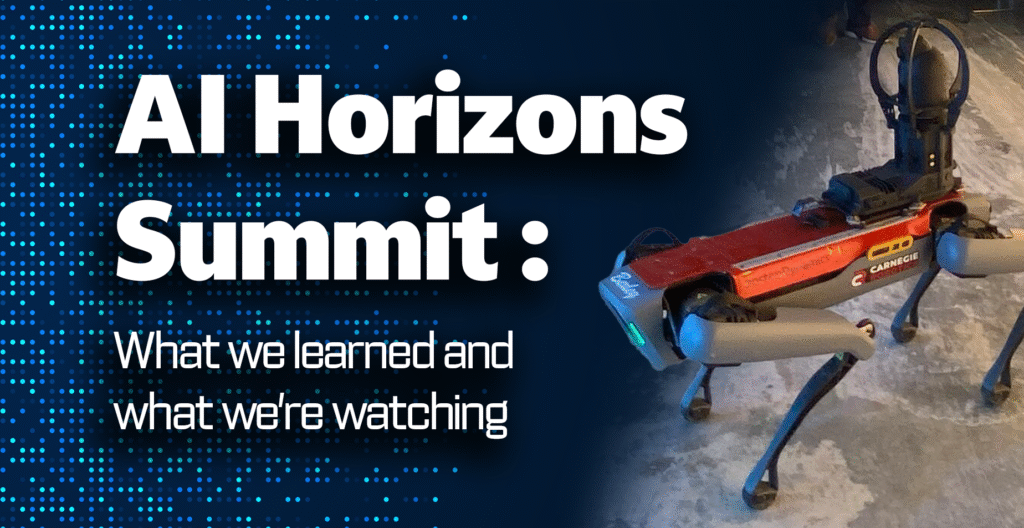
We’re less than three months from the Iowa caucus and a year from the 2020 election. The Democratic field is – as expected – very much in flux. Here are some of my impressions as we head into Wednesday night’s debate in Atlanta.
For a Democrat to win Pennsylvania in 2020, that candidate has got to be a moderate. He or she has to have a strong economic message, of course, and that means making sure that everyone – whether they’re upper class, middle class or working class – knows that you’ve got a plan to help them succeed.
The battleground states for 2020 – Pennsylvania, Michigan, Wisconsin – will be won or lost based on the best economic argument. Trump has a great argument, in that the economy is good right now.
The Democrats will argue that it’s not good for everyone, and there’s some merit to that. Beyond that, Trump has accomplished the amazing feat of having a strong economy but being down in the polls – because with him, it goes much deeper. It goes to the level of discourse and the moral fiber of the country.
So a Democratic candidate has to be able to both translate a coherent economic message that makes people feel secure, and also appeal as someone who will repair the torn moral fiber and govern with a sense of calm. Voters in these key swing states really want a break from the drama – they want normality.

You know, the recent 2019 elections show that Pennsylvania is more divided than ever between red and blue. The Democrats were very successful in Philadelphia and the local suburbs, flipping Delaware County and winning seats elsewhere. But in my home of Washington County, the Republicans took control. I don’t know when something like that has ever happened before. If you’re the Democrats, I guess you say, ‘I’ll take that tradeoff,’ because the population is much larger on this side of the state.
Clearly, the vote in the suburbs here was a vote against Trump. But the truth is that he has only accelerated what was already happening with the Philadelphia suburbs drifting toward the Democrats. That’s really a national trend – longtime GOP-held suburbs are moving away from that party.
What Trump wrought was a surge in voter turnout in an off-year election. Democratic voters were more motivated. Republicans didn’t come out. The question now is, will the Republicans come out when Trump is on the ballot? Philadelphia has 110,000 GOP voters and they stayed home this month, which contributed to the party losing a seat in City Council.
Some of the latest Democratic polls show Mayor Pete catching momentum, even leading in Iowa. He’s now at Tier 1-A, as I’d call it. You have this race when Biden, Sanders and Warren at still at the top, and then Buttigieg. After that, Amy Klobuchar is hanging in there, and – to a lesser extent – Kamala Harris and Cory Booker.
Let’s talk about Joe Biden. For all the slings and arrows he takes, he’s still standing. And good for him that he’s still up there. Because he was the best-known candidate going in, you had to expect his numbers wouldn’t grow as voters looked around at other candidates. The key for him was to not have them go down. And he’s still the leader.
Look, everyone knows who Biden is. He’s “Joe,” for better or worse. He certainly isn’t going to reinvent himself at this point.
Elizabeth Warren’s numbers have declined recently, which is to be expected. When someone is the frontrunner, it’s their time in the barrel, their time to take the attacks. Biden has shown so far he can withstand the attacks and the doubts. Sen. Warren has to do that now. She gained her stride in the summer, but the last debate was not good for her. She needs to use this opportunity to show people that her policies are realistic.
That said, she is getting endorsements – certainly from important people in Philadelphia. But of course, we’re in a bubble in Philadelphia; we don’t always view things like the rest of the state or the country.
Mayor Pete has momentum with the educated, the elites, that branch of the party. But he is not a realistic possibility until he finds a way to get African American votes. You cannot be the Democratic nominee next November if you don’t have African American support.
As for Sanders, I think his health is a problem and that heart attack hurt his chances.
Progressives are basically flipping a coin between Bernie and Warren. Many of them may worry that he can’t take them to Promised Land. In their minds, they may rationalize his heart attack as a reason to go with Sen. Warren.
The most disappointing candidate so far is Kamala Harris. I think she’s really good, but this may be a case of someone who is just not ready. Her flip-flops on a number of issues have hurt her. Her attacks on Biden backfired. She’s really talented, but has hit too many potholes.
It’s interesting that Mayor Bloomberg and former Massachusetts Gov. Deval Patrick have made overtures about coming in. I think for Patrick, who’s an Obama-type candidate, it’s too late to hire the right staff and raise enough money. For Bloomberg, I’m not sure why he’s doing this. I don’t see the opening or what he brings to the race.
Bottom line: The field of Democratic candidates is good, although there’s no superman or superwoman who has yet emerged. The upcoming debates will help clarify that, and then it’s on to Iowa and New Hampshire.




